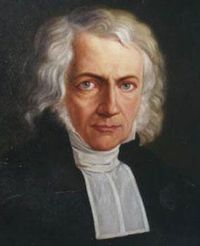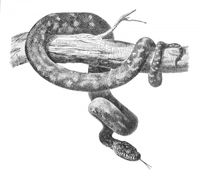A brief genealogy of Theological Liberalism.

In spite of all its claims to the contrary, Liberal Theology is not new.
The movement did not begin in our days with the likes of John Shelby Spong (1931), John Dominic Crossan (1934) or the late Marc Borg (1942-2015).
Today’s brand of liberal theologians who call the Word of God into question were influenced by the Germans Rudolf Bultmann (1884-1976) and Paul Tillich (1886-1965) who both subjected Christianity to an entirely subjectivist existential framework.
But we would be wrong to think liberalism began with Bultmann or Tillich.
When Bultmann and Tillich were in their student years, liberal theology was at the height of its powers. The charismatic Wilhelm Hermann in Marburg (1846-1922), Adolf von Harnack in Berlin (1851-1930) and the founder of the history of religions school, Ernst Troeltsch (1865-1923) in Heidelberg dominated the theological scene with their conviction that Christianity was first and foremost a man-centred experiential affair and that it was only one of many religious expressions throughout the world at large. Even though one of Troeltsch’s most renowned students Albert Schweitzer (1875-1965) believed Christianity to be the most evolved of the world’s religions; it was by no means absolute.
But again, we would be wrong to think liberalism began with Hermann, von Harnack or Troeltsch.
 Friedrich Schleiermacher.
Friedrich Schleiermacher.These three men were greatly influenced by the liberal thought of Albrecht Ritschl (1822-89) who had promoted an exclusively ethics-rooted view of the Kingdom of God and Jesus Christ. Rather than Jesus being the eternal Son of God made manifest in flesh, Ritschl was interested in Jesus for moral reasons given that the preacher from Nazareth lived in entire conformity to the will of God. It was this ethical stimulus divorced from any real doctrinal content that had such an impact upon the father of the Social Gospel over in the USA, Walter Rauschenbusch (1861-1918). Rauschenbusch drained the Scriptures of their theological affirmations in the name of socio-political activism.
But we would be wrong to think liberalism began with Albrecht Ritschl.
Ritschl had two guiding lights: one philosophical and one theological. His theological hero was Friedrich Schleiermacher (1768-1834). It is Schleiermacher who has gone down in church history as the founder of modern theology. Rather than basing Christian theology upon the Word of God, the unconverted Reformed minister was convinced that theology had to begin with human religious experience. Therefore any doctrines in Scripture that had no bearing on human feeling were to be written off.
Schleiermacher’s anthropological thrust came about thanks to the philosophy of Ritschl’s other role model, the philosopher Immanuel Kant (1724-1804). It was Kant who described the Enlightenment as “man’s emergence from his self-imposed immaturity”. Man should not submit his own personal reason to any authority outside of himself. Scripture and Christ included! Despite being a Lutheran by confession, Kant had no time for Jesus or any biblical doctrine that went against the dictates of practical reason. Religion, as far as Kant was concerned, was just a subjective moral affair that helped humanity to live at peace. It was man-centred not God-centred.
But we would be wrong to think liberalism began with Schleiermacher or Kant.
Kant’s subjectivist philosophical revolution could never have come about without Rene Descartes’ (1596-1650) explicit anthropocentric thrust in back in the seventeenth century. Descartes was the first Western thinker to propose that all philosophy had to start with the human subject: “I think therefore I am”.
Descartes’ disbelief in external authority, his personal experience approach to knowledge, his emphasis on the self and his systemic doubt were key factors that paved the way for theological liberalism. It was really Descartes and not Kant who launched the Enlightenment by daring to think for himself independently of any exterior authority. In Descartes’ methodology, the human subject took priority over the Word of God.
But we would be wrong yet again to think liberalism began with René Descartes.
Even when the Protestant Reformation burst forth into sixteenth-century Europe with the power of the Word accompanying its every step, a bastardised theological offshoot known as Socinianism came into being which denied almost every distinctive Christian doctrine due to sceptical reason.
Following the lead of Faustus Socinus (1539-1604) the Socinians axed the Trinity, the divinity of Christ, original sin and substitutionary atonement from their sect. Some even went so far as to deny the virgin birth of Christ and the miracles registered in the Bible. Socinianism thus became a forerunner of the contemporary Unitarian Church which continues to downplay all things doctrinal. In recent years, the Unitarians have also come to deny the doctrine of hell.
But we would be wrong to think that liberalism began with the Socinians.
As we wonder back into the history of the early church a rank liberal by the name of Marcion of Sinope appeared (85-160) who questioned the holy doctrine of the apostles. Since Marcion was only interested in preaching about the love of God, he did away with the Old Testament canon arguing that the God revealed therein was not the Father of the Lord Jesus Christ.
Given his liberal stance, it is not surprising to learn that Marcion also denied the literality of Jesus’ birth, death and resurrection. He proposed his own self-made New Testament canon based on the Gospel of Luke and ten Pauline epistles. However, Marcion also took the liberty to correct Luke and Paul where their theology went against his own love-centred teaching.
But even before Marcion was born, there were liberal theologians in the days of the Lord Jesus Christ. They were called the Sadducees. Once again, their scepticism and man-centred thinking downplayed the revelation of God. Scripture itself points out that, in contrast to Christ, the Sadducees disbelieved in the resurrection of the dead (Matthew 22:23) and in the existence of angels (Acts 23:8).
As they drew near to the shores of the Jordan along with the Pharisees, John the Baptist shouted out to them: “You brood of vipers! Who warned you to flee from the coming wrath?” (Matthew 3:7). If John were still with us today, would he perhaps utter the same vehement statement against twenty-first century liberals?
But we would be wrong to think that liberalism began with Marcion or the Sadducees.
Interestingly enough Phil Johnson traced liberal lineage back to Israel’s wicked king Rehoboam. 2 Chronicles 20:8 states, “But Rehoboam rejected the advice the elders gave and consulted the young men who had grown up with him and were serving him”. Rehoboam did not want to learn from the wisdom of past generations but to do things his way according to the mood of the times. In this sense, “The mind set of postmodern neo-liberalism is as old as Rehoboam” (Johnson).1 Rehoboam did not care about the Word of the Lord but about doing things his way. He was ego-focused not God-centred.
But we would be wrong to think that liberalism began with evil king Rehoboam.

I agree with the analysis of Eugene F. Klug who points out in his article ‘The Roots of Theological Liberalism’ that liberalism reaches back to Eden’s serpent. As Klug affirms, “Its roots are traceable to man’s yielding to Satan’s tantalizing suggestion, ‘Yea, hath God said?’ Ever since that time human doubt has challenged God’s revelation of Himself, His Word, His mighty acts –in fact, God Himself”.
Klug is dead right. It was Satan himself who was the first agent to turn humankind away from the Word of God to their own subjective sphere of personal fulfilment. Did he not promise, “You shall be as gods?” In reality, liberalism is as old as the Garden of Eden. It is as old as the Fall. Satan put self first. Adam and Eve obliged.
Today’s liberals like to appear up to date, exciting and at the cutting edge of contemporary scholarship; but our historical investigation shows that theological liberalism is anything but new. Their anthropocentric approach to theology ultimately leads to a denial of the sovereign Lord of Scripture.
So whilst it is true to say that twenty-first century liberals are a mixture of Spong, Borg, Crossan, Bultmann, Tillich, Troeltsch, von Harnack, Hermann, Ritschl, Kant, Descartes, the Socinians, Marcion, the Sadducees and Rehoboam; it would be much more intellectually honest and precise to say that they are the veritable heirs of the theology of the snake.
God’s Word or the snake’s word?
God-centred theology or me-me-me centred theology?
That was the question in Eden.
That is the question today.

Las opiniones vertidas por nuestros colaboradores se realizan a nivel personal, pudiendo coincidir o no con la postura de la dirección de Protestante Digital.
Si quieres comentar o